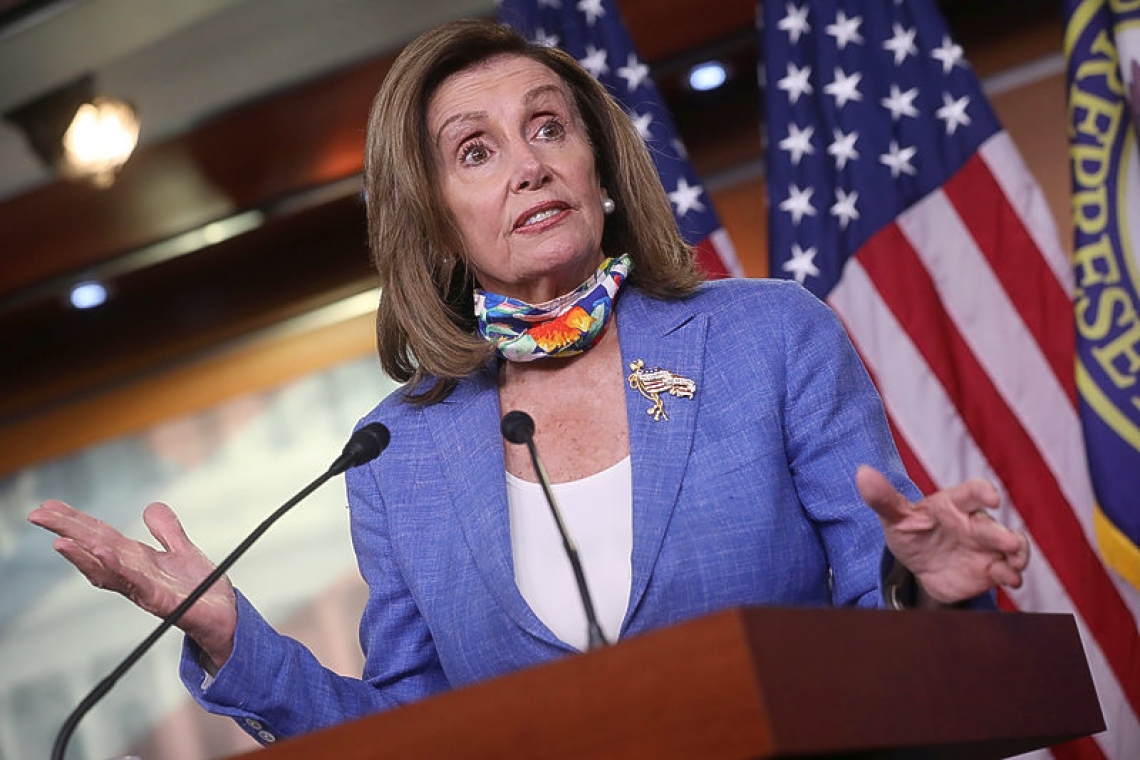WASHINGTON--The United States should impose sanctions on Russia's intelligence and defense sectors, House of Representatives Speaker Nancy Pelosi said on Thursday after a briefing on reported Russian payments to Taliban militants to kill U.S. soldiers in Afghanistan.
While not disclosing what she and other top lawmakers were told about the reported bounties, Pelosi accused the White House of "putting on a con" in saying President Donald Trump was not briefed on the intelligence because it was not fully verified.
She also scorned him for his apparent failure to read a written briefing on the issue and for seeking to improve ties with Russian President Vladimir Putin even as U.S. intelligence suggested Russia was working to kill U.S. and allied soldiers.
"We had a strong bipartisan bill that was to be sent to the president but the White House said they wanted us to take out the sanctions on Russia that pertained to the intelligence and the defense sectors, the very sector that is accused of possible threats on our men and women in uniform," Pelosi told reporters.
"We must restore those sanctions and we must act upon them," she added, speaking after a briefing of the 'Gang of Eight' congressional and intelligence committee leaders. It was not immediately clear what legislation Pelosi was referring to and she did not provide details.
A senior Trump administration official said the White House did not plan an immediate response to the intelligence reports because "the intelligence remains uncorroborated and unverified and there are dissenting viewpoints within the community."
Four U.S. and European government sources, who are familiar with intelligence reporting and spoke on condition of anonymity, said that in recent weeks the United States had acquired fresh reporting backing up the allegations that Russia had encouraged Taliban-affiliated militants to kill U.S. and allied soldiers in Afghanistan. One of those sources and two others said U.S. intelligence agencies are confident Russia encouraged the Taliban to kill U.S. troops but that there is a disagreement between the Central Intelligence Agency and the National Security Agency over whether Moscow had actually paid bounties.
Trump, a Republican who has worked to cultivate warmer relations with Moscow, denied being briefed on the matter before it was reported by news outlets last week. On Wednesday, he called the reports hoaxes and said it had not risen to his level because there wasn't consensus among U.S. intelligence branches.
"The White House put on the con that if you don't have 100 percent consensus on intelligence that ... it shouldn't rise to a certain level. We would practically be investigating nothing if you had to start off at 100 percent. So don't buy into that," Pelosi said.
The White House has struggled to explain the Trump administration's response to the bounty reports, but has not commented on their substance or denied the information was included in written presidential intelligence briefings. Trump said on Wednesday he was not told about the reported Russian effort because many U.S. intelligence officials doubted its veracity, a stance contradicted by four U.S. and European sources and by its inclusion in a widely read CIA report in May.
The New York Times, which broke the story last week, has reported Trump received a written briefing in February. "These reports are coming to light in the context of the President being soft on Vladimir Putin when it comes to NATO, the G7, Crimea, Ukraine and the ongoing undermining of the integrity of our elections," Pelosi and Senate Democratic Leader Chuck Schumer said in a joint statement after their briefing.
"Our Armed Forces would be better served if President Trump spent more time reading his daily briefing," the added.







